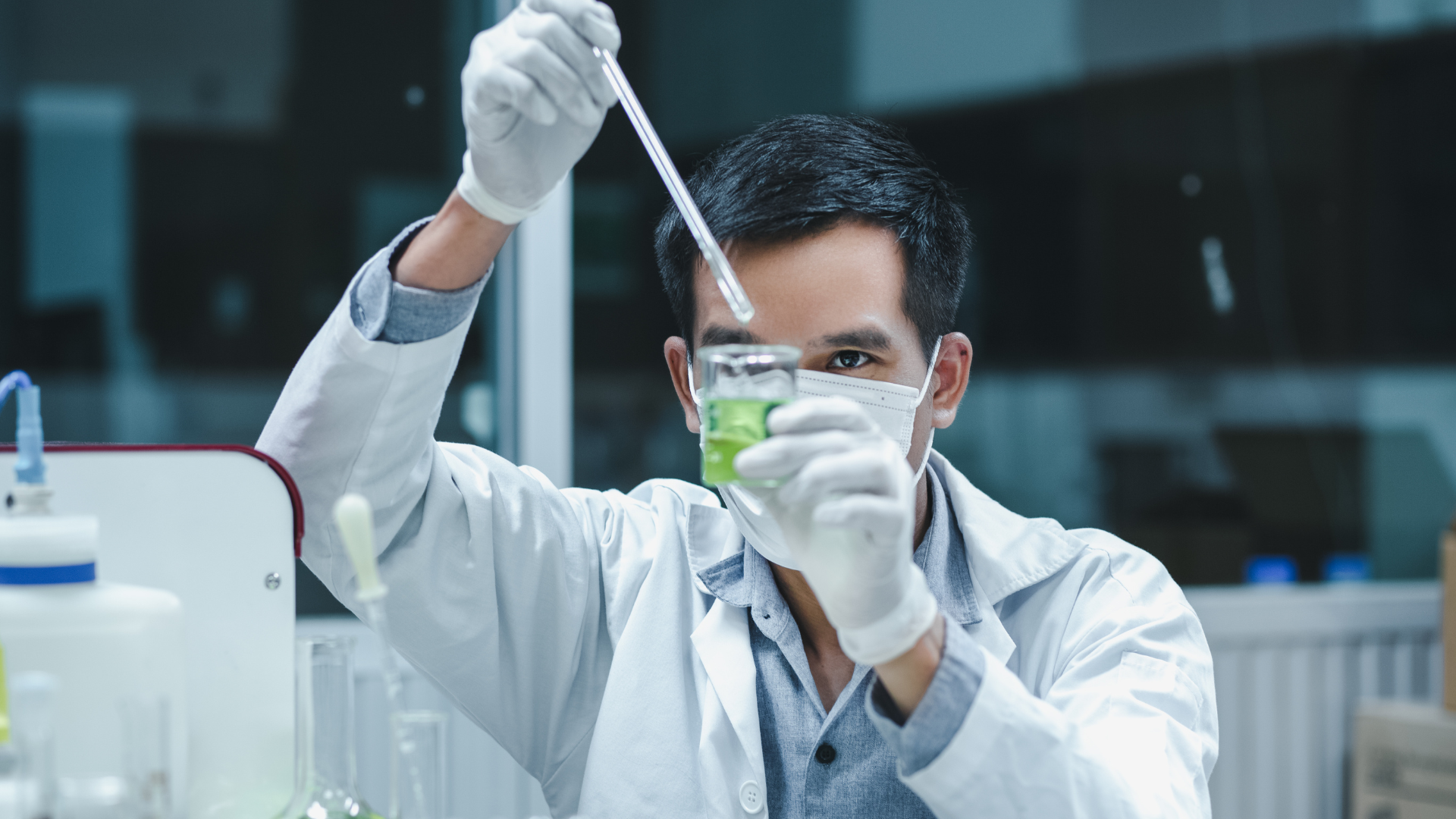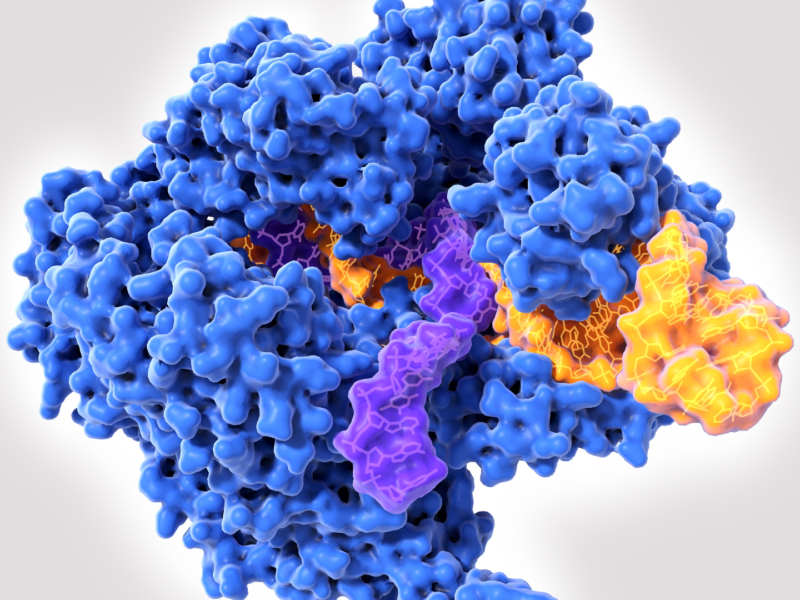Biotechnology merges biology with technology to harness cellular and biomolecular processes. It encompasses a wide range of applications, from developing life-saving pharmaceuticals to improving agricultural practices. By manipulating living organisms, biotechnology aims to solve real-world problems, enhancing health and sustainability.
The field continues to evolve rapidly, driven by advancements in genetic engineering, molecular biology, and bioinformatics. It plays a vital role in creating innovations that address challenges such as food security, environmental sustainability, and disease management. Understanding its principles allows for informed discussions on its impact on society and the economy.
This dynamic area of study opens up new possibilities in various sectors, such as medicine, agriculture, and environmental science. By exploring biotechnology, one can appreciate its significance in shaping the future and addressing some of the world’s pressing issues.
Definition and Scope of Biotechnology
Biotechnology encompasses techniques and processes that harness biological systems or organisms for innovative applications. It spans multiple fields, revolutionizing areas like medicine, agriculture, and environmental science.
Historical Perspectives
The roots of biotechnology can be traced back thousands of years. Ancient civilizations employed fermentation processes for making bread, beer, and wine. These practices demonstrated early uses of microorganisms in food production.
In the 19th century, scientists began to understand the role of microbes in these processes. Louis Pasteur’s work on fermentation laid the groundwork for modern microbiology. By the 20th century, techniques such as hybridization emerged, paving the way for advancements in plant breeding.
Modern Biotechnology
Modern biotechnology combines biological sciences with engineering technologies. It employs tools like genetic engineering, cell culture, and molecular markers. These techniques allow for the manipulation of organisms at the genetic level.
Applications in medicine include gene therapy and the production of recombinant proteins, such as insulin. In agriculture, biotechnology has led to the creation of genetically modified organisms (GMOs) that resist pests and improve crop yields. Environmental biotechnology addresses pollution through bioremediation techniques, utilizing microorganisms to clean contaminated areas.
This evolving field continues to offer solutions to some of society’s most pressing challenges, demonstrating the broad scope of biotechnology’s impact.
Core Disciplines in Biotechnology
Biotechnology integrates various scientific fields to manipulate biological systems and organisms. Key disciplines within biotechnology play crucial roles in research and application.
Bioinformatics
Bioinformatics combines biology, computer science, and information technology to analyze biological data. It is essential for processing large datasets from genomics and proteomics. This discipline develops algorithms, software, and databases that facilitate understanding complex biological information.
Applications of bioinformatics include gene sequencing, protein structure prediction, and molecular modeling. It helps researchers identify gene functions and interactions, providing insights critical for advances in medicine and agriculture. As a rapidly evolving field, bioinformatics supports personalized medicine by analyzing patient data to tailor treatments effectively.
Bioprocessing
Bioprocessing involves using living cells or their components to produce products. This discipline is pivotal in the pharmaceutical and food industries, focusing on the industrial application of biological organisms.
In bioprocessing, microorganisms or cell cultures are utilized to convert raw materials into valuable products. Key processes include fermentation, cell culture, and enzyme-based reactions. Techniques like downstream processing ensure product purification and recovery, making the process efficient and cost-effective.
It also addresses challenges such as scalability and product yield, ensuring that bioprocesses meet industrial demands. Innovations in this area can lead to sustainable production methods that minimize waste.
Genetic Engineering
Genetic engineering manipulates an organism’s DNA to introduce or modify specific traits. Techniques such as CRISPR and recombinant DNA technology have revolutionized the field, allowing precise alterations to genomes.
This discipline has broad applications, from agriculture to healthcare. In crops, genetic engineering can enhance resistance to pests and improve nutritional content. In medicine, it enables the development of gene therapy techniques for treating genetic disorders.
Ethical considerations play a significant role in genetic engineering discussions. The potential for unintended consequences reinforces the need for responsible practices and regulation in biotechnological advancements.
Molecular Biology
Molecular biology focuses on the interactions between biological molecules, particularly DNA, RNA, and proteins. This discipline is foundational for understanding cellular processes and mechanisms.
Molecular biologists utilize techniques such as PCR, gel electrophoresis, and cloning to study genetic material. These methods allow them to investigate gene expression, protein interactions, and cellular signaling pathways.
Research in molecular biology contributes to fields like cancer research, drug discovery, and biotechnology. By revealing the molecular underpinnings of diseases, it enables the development of targeted therapies and innovative treatments.
Applications of Biotechnology
Biotechnology plays a crucial role in various sectors, driving innovations in healthcare, agriculture, industry, and environmental management. Each application utilizes biological systems and organisms to enhance processes and products.
Healthcare and Medicine
Biotechnology has transformed healthcare through advancements in diagnostics, therapeutics, and vaccine development. Recombinant DNA technology, for example, enables the production of insulin and monoclonal antibodies, improving the treatment of diseases like diabetes and cancer.
Gene therapy represents another significant application, allowing the correction of genetic disorders at the molecular level. This technique can potentially cure conditions such as cystic fibrosis and hemophilia. Furthermore, biotechnology aids in personalized medicine by tailoring treatments based on an individual’s genetic makeup, leading to more effective outcomes.
Agricultural Biotechnology
In agriculture, biotechnology enhances crop yield, resistance to pests, and nutritional quality. Genetically modified organisms (GMOs) are engineered to express traits like herbicide tolerance and insect resistance, reducing the need for chemical pesticides.
Biotechnology also plays a vital role in developing crops with better nutritional profiles, such as biofortified rice rich in vitamin A. Additionally, tissue culture techniques allow for the propagation of disease-free plants, ensuring healthier crops. These innovations contribute to food security by increasing agricultural productivity sustainably.
Industrial Biotechnology
Industrial biotechnology utilizes biological processes for the production of chemicals, materials, and energy. Enzymes play a crucial role in manufacturing, facilitating processes in industries like textiles, food, and detergents.
Biorefineries exemplify this application by converting biomass into biofuels, reducing dependence on fossil fuels. Moreover, microorganisms can be employed to produce biodegradable plastics, promoting sustainability. This sector also focuses on reducing waste through bioprocesses, leading to a circular economy.
Environmental Biotechnology
Environmental biotechnology addresses ecological challenges by using microbial processes to treat waste and restore ecosystems. Bioremediation employs bacteria and fungi to break down pollutants in soil and water, mitigating contamination effectively.
This approach can be seen in oil spill cleanups, where specific microbes are deployed to degrade hydrocarbons. Additionally, biotechnology contributes to waste management through the development of composting and anaerobic digestion techniques, transforming organic waste into valuable by-products such as biogas. These applications highlight biotechnology’s potential to support sustainable environmental practices.
Ethical and Social Considerations
Biotechnology presents a range of ethical and social considerations that warrant careful examination. These topics include the challenges posed by new technologies, the perceptions of the public, and the regulatory frameworks that govern biotechnology practices.
Ethical Challenges
Ethical challenges in biotechnology often involve issues such as genetic modification, cloning, and the manipulation of living organisms. These practices raise questions about the moral implications of altering life forms.
Concerns about biotechnology include informed consent, especially in genetic testing. Individuals may not fully understand the consequences of testing or modifying their genes. There are also worries about biotechnology’s impact on biodiversity, as genetically modified organisms can disrupt natural ecosystems.
Additionally, the potential for unequal access to biotechnological advances poses ethical dilemmas. Wealthier individuals or countries may gain more benefits, exacerbating existing inequalities.
Public Perception and Engagement
Public perception of biotechnology significantly shapes its development and application. Many individuals express skepticism or fear towards biotechnological innovations, often due to misinformation or ethical concerns.
Engagement initiatives, such as community forums and educational programs, play a critical role in addressing these perceptions. Providing transparent information can diminish fears related to biotechnology.
Surveys indicate that trust is a crucial factor influencing public opinion. Engaging with communities and addressing their concerns can foster a more positive relationship between the public and biotechnological advancements.
Regulatory Frameworks
Regulatory frameworks for biotechnology vary across regions and are essential for ensuring safety and ethical practices. Agencies like the FDA in the United States or the European Medicines Agency set guidelines for the development and approval of biotechnological products.
Regulations are designed to address safety, efficacy, and environmental impact concerns. Compliance with these standards is vital for public trust and acceptance.
Consistent regulatory updates are necessary to keep pace with rapid advancements in biotechnology. A well-structured regulatory environment facilitates innovation while protecting public health and the environment.
Technological Advances and Research
The field of biotechnology has seen remarkable technological advances and active research efforts. Innovations in techniques and applications are expanding capabilities in various areas, from healthcare to agriculture.
Genome Editing Technologies
Genome editing technologies have transformed the landscape of biotechnology. Techniques such as CRISPR-Cas9 enable precise modifications to DNA, allowing researchers to add, remove, or alter genetic material in organisms. This has significant implications for disease treatment, agricultural enhancement, and environmental sustainability.
- CRISPR-Cas9: This method is known for its simplicity and efficiency, making it widely accessible for various applications.
- Zinc Finger Nucleases (ZFNs): Early genome-editing tools that paved the way for newer technologies.
- TALENs: Transcription Activator-Like Effector Nucleases offer precise editing similar to CRISPR but with different methodologies.
These technologies hold the potential for eliminating genetic diseases and developing crops resistant to pests.
Biotechnological Innovations
Biotechnological innovations encompass a wide array of scientific advancements. Various sectors benefit from these innovations, including pharmaceuticals, industrial biotechnology, and environmental management.
- Biopharmaceuticals: Recombinant DNA technology allows for the production of therapeutic proteins and vaccines, enhancing healthcare options.
- Synthetic Biology: This emerging field combines biology and engineering to design new biological parts and systems.
- Biofuels: Advances in microbial processes enable the conversion of biomass into renewable energy sources.
Such innovations illustrate biotechnology’s role in addressing global challenges, such as food security and climate change.
Research and Development
Active research and development drive the continuous improvement of biotechnological applications. Institutions and companies worldwide invest significantly in R&D to explore new frontiers.
Current areas of focus include:
- Personalized Medicine: Tailoring healthcare treatments to individual genetic profiles.
- Agricultural Biotechnology: Developing crops with improved traits, including drought resistance and enhanced nutritional content.
- Biosensors: Creating devices that can detect biological signals for medical diagnostics or environmental monitoring.
Investment in R&D ensures that biotechnology remains at the forefront of solving critical issues in society.
Economic Impact of Biotechnology
Biotechnology plays a vital role in modern economies by driving innovation, enhancing productivity, and creating job opportunities. This section explores the biotechnology industry and the global market trends that shape its economic significance.
Biotechnology Industry
The biotechnology industry encompasses a variety of sectors, including pharmaceuticals, agriculture, and environmental solutions. It involves the use of living organisms, cells, and biological systems to develop products and technologies that improve health and agricultural yields.
Key aspects of the biotechnology industry include:
- Job Creation: The industry contributes significantly to employment, generating millions of jobs globally.
- Investment: Significant investments from both private and public sectors fuel research and development.
- Economic Growth: In countries like the United States, the biotechnology sector adds billions to GDP each year.
Companies within this sector continue to innovate, leading to enhanced healthcare solutions, sustainable agriculture practices, and biofuels, benefitting economies worldwide.
Global Market and Trends
The global biotechnology market has been rapidly expanding, with an estimated valuation of over $600 billion in recent years. This growth can be attributed to advancements in technology and increased demand for bioproducts.
Key trends influencing the market include:
- Personalized Medicine: Tailoring treatments based on individual genetic profiles is becoming more mainstream.
- Sustainable Practices: There is a growing emphasis on eco-friendly biotechnological solutions in agriculture and energy.
- Investment Growth: Venture capital and public funding are increasingly directed toward biotechnological innovations, driving research.
As these trends unfold, the biotechnology sector is likely to continue reshaping industries and creating new economic opportunities worldwide.
Future Prospects and Challenges
The future of biotechnology involves both exciting advancements and significant challenges. Key areas poised for growth include sustainable practices, innovative therapeutic strategies, and the expansion into new markets with emerging technologies.
Sustainable Biotechnology
Sustainable biotechnology aims to reduce environmental impacts while enhancing productivity. This includes methods such as bioremediation and the development of biofuels.
- Bioremediation utilizes microorganisms to clean pollutants from soil and water.
- Biofuels provide renewable energy sources, diminishing reliance on fossil fuels.
The integration of biotechnology in agriculture focuses on producing higher-yield crops with fewer resources. Additionally, symbiotic relationships in ecosystems are harnessed to promote sustainability, which leads to improved soil health and reduced chemical inputs.
Future Therapeutic Strategies
Innovations in therapeutic strategies hold promise for treating various diseases. Advances in gene editing technologies, such as CRISPR, allow for precise modifications in genetic material.
- Personalized medicine tailors treatments based on individual genetic profiles, improving efficacy.
- Cell and gene therapies offer potential cures for previously untreatable genetic disorders.
These approaches not only enhance patient outcomes but also reduce long-term healthcare costs. Challenges remain in ensuring equitable access to these technologies and addressing ethical concerns related to genetic modifications.
Emerging Markets and Technologies
Emerging markets represent significant opportunities for biotechnology growth. Regions in Asia, Africa, and Latin America are increasingly investing in biotechnological innovations to improve healthcare and agriculture.
- Investment in biotechnology startups is rising, driven by venture capital and government support.
- Collaboration among international researchers fosters innovation and knowledge sharing.
Integrating advanced technologies, such as artificial intelligence and machine learning, continues to transform research and development processes in biotechnology. Addressing regulatory frameworks and intellectual property issues will be crucial for sustaining growth in these markets.



